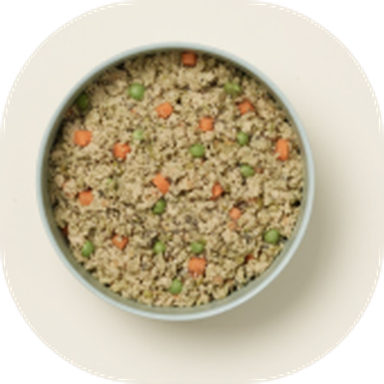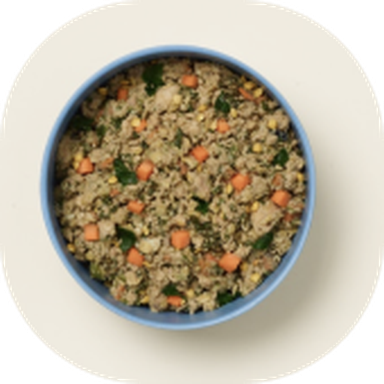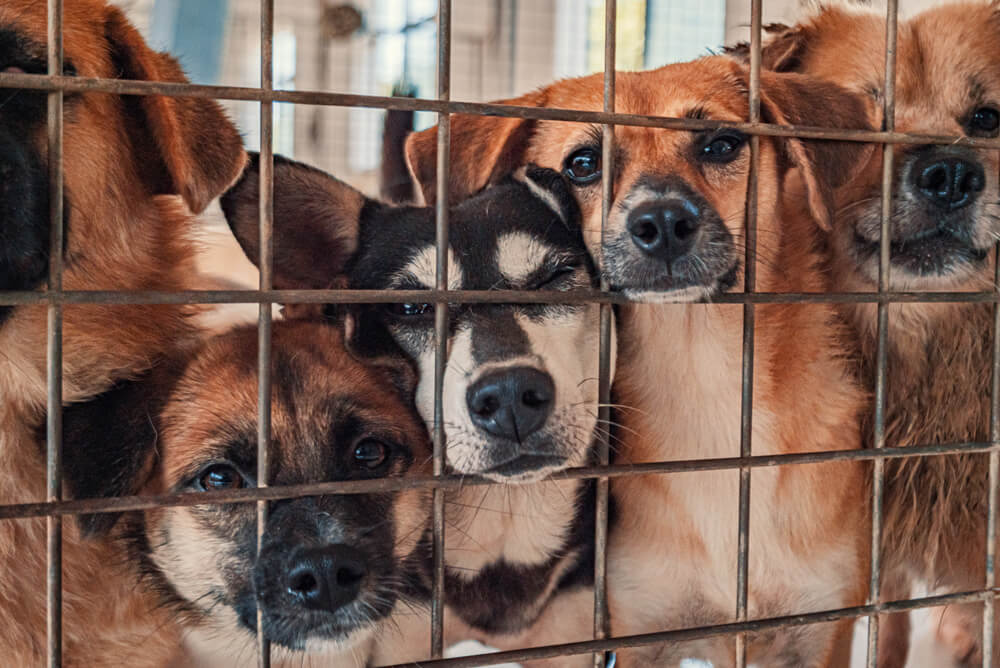Hey Ollie blog readers! We’re offering you an exclusive 60% OFF your starter box! Try now!
As Mother’s Day is rapidly approaching, we’re thinking about our dog’s biological moms. What do you know about your dog’s biological mom? If you got your pup from a breeder or they were born in a shelter, you might know a lot. Your dog might even occasionally see their mom or you might send updates about your pup to the people who own her.
For many mama dogs, being a mother is a formality. Some dogs, who are part of a business called puppy mills are only used (and valued) for their ability to produce puppies and make a lot of money for the people who own them. This mothers day we wanted to raise awareness around this practice and provide resources to help stop it.

About puppy mills
A puppy mill is a commercial dog breeding facility. The dogs in these facilities are typically bred with as little time between litters as possible. The dogs are often kept in crates with wire flooring and not allowed to go outside. The puppies are taken from their mother at 8 weeks old and sold for thousands of dollars. Dogs in puppy mills are offered the bare minimum in terms of grooming and medical care. If you are wondering how pervasive puppy mills are, the Humane Society of the United States estimates that over 10,000 puppy mills are currently active across the US. Over 194,000 dogs are kept in these facilities for the sole purpose of breeding. They produce over 2 million puppies per year for their owners. If you estimate that the average puppy mill puppy retails for $2,000 that is a lot of money.
Puppy mill puppies are often sold online and shipped to their new homes. With owners never visiting the facility these mills can hide behind pretty websites and clever marketing. While you may see happy photos of the puppies parents, these are purely for marketing purposes. Puppy mill puppies are often sold in pet stores too. However this is changing as some pet stores are either no longer selling live puppies or bringing puppies from local rescues to help them find homes and alleviate some of the crowding in shelters.

Pledge to help end puppy mills
This Mother’s day we’re asking you to join us in our pledge to end puppy mills. Here are 6 easy ways to bring more awareness to these practices and support better alternatives.
1. Ask your local pet store to adopt policies that benefit puppies
These policies may include stopping the sale of live puppies, or ensuring that any puppies available through the store are from local shelters for an adoption fee. You can also vote with your dollars and refuse to purchase food or supplies for your pet from stores that continue to sell puppies and support puppy mills.
2. Be an advocate for puppy mill moms
Reading articles like this one and educating yourself about the issues surrounding puppy mills is a great first step. If you want to take things a step further, review the Humane Society’s advocacy guide.
3. Get political
Learn about local laws that protect puppy mills and reach out to your politicians. They represent you and your interests (like stopping puppy mills and other forms of animal cruelty) should also be their interests.
4. Be a puppy mill mom’s publicist
Write a letter for your local newspaper, post on social media or even make a TikTok to teach others about why puppy mills are bad for dogs – and how to avoid supporting them.
5. See something? Say something
If you see puppies for sale or signs of a puppy mill, report it. Call your local SPCA or animal cruelty prevention officer and file a report.
6. Adopt, don’t shop!
Local shelters and rescues are filled with dogs of all ages and breeds who need good and loving homes. These dogs are generally available for an adoption fee of only a few hundred dollars as opposed to the thousands of dollars you’ll spend to purchase a “purebred” dog from a puppy mill. While cost isn’t the only consideration, by rescuing a dog you will actually save more than just the pup you bring home. You’re also rescuing the dog that gets to take their place in the shelter.
Ending puppy mills will take a lot of work and focused effort by lawmakers, rescues and us, the general public. In addition to needing stricter laws so that these businesses can’t operate, we need to educate people around the alternatives.
There are so many responsible breeders, shelters and rescues that are ready and willing to help you find the perfect pup. This Mother’s Day take the pledge to do your part to end puppy mills in honor of all the dog moms that have spent their lives making puppies for profit.
The Ollie blog is devoted to helping pet parents lead healthier lives with their pups. If you want to learn more about our fresh, human-grade food, check out MyOllie.com.
Tagged As:

The nutrition your dog needs,
the food they want.

Enjoying our articles? Subscribe our Newsletters and get new articles directly to your inbox
You might also like
9 September 2024
3 MINS READ
How to Choose the Right Dog Daycare
When it comes to finding the best dog daycare, it can be hard to know where to start. Read on for tips on what to look for, ask about, and keep in mind during your search.
by Ollie Pets
26 April 2024
4 MINS READ
How Often Should I Take My Dog To The Vet?
Routine veterinary care is important for your dog’s overall health—but how often should your pup visit the vet? We answer this question and outline common health signs that warrant a veterinary…
by Ollie Pets
28 February 2024
6 MINS READ
Why Do Dogs Eat Poop & How to Stop It
Does your dog partake in poop? We get to the bottom of this unusual behavior, including its medical and behavioral causes, and how to address it.
by Ollie Pets













